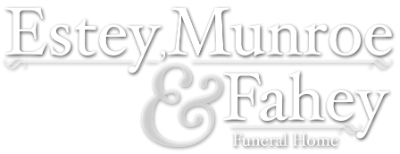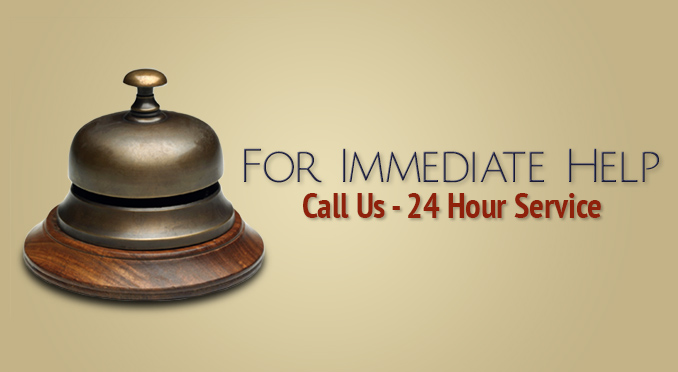Questions & Answers
What to do if a Death Occurs
There are few things in life more traumatic than the death of a family member. Most people are not totally prepared to know exactly what should be done or the sequence to do them in.
General Guidelines
- Regardless of when and where a death occurs, the family should call us as soon as possible. Our telephone is answered 24 hours a day. Many times we can offer help, suggestions or answer questions to relieve anxiety. We will ask some specific questions, such as name of the deceased, the place of death, the name of the person calling, their relation to the deceased, their phone number, directions to the home if a home death, and any other information that you would like to provide. If you want to tell us about any service that you desire or information that you need, we will help in any way possible. Finally, we will set up a convenient time for an appointment to complete all arrangements.
An Anticipated Death in a Healthcare Facility
- When a death occurs in a hospital or nursing home, there is a little the family needs to do immediately, except to call us. The medical staff at the healthcare facility will pronounce the death. We will be in contact with the facility about releasing the deceased to us.
An Anticipated Death at Home
- Many people with a debilitating terminal illness want to die at home in more familiar surroundings with the family close by. When a death occurs outside of a healthcare facility, the first step would be call the attending physician who cared for the individual or the hospice or visiting registered nurse in charge. One of them must come to the home to pronounce the death. If neither of them can come, then the 911 dispatcher must be notified. The dispatcher will have the paramedics and police respond to the home. Once the pronouncement has been made, no matter what time of day, we will come to the home and take charge of the deceased.
When Death Occurs Out of Town
- Wherever the death occurs, call Estey, Munroe & Fahey Funeral Home immediately. There is no need to call an unknown funeral director in a place that you might be unfamiliar with. When you call us, we will ask a few questions necessary to take charge and then we will make the necessary arrangements, acting as your agent, to have the deceased returned to Estey, Munroe & Fahey Funeral Home. We are members of a network of independent funeral homes across the country. We will handle all of the details and arrange transportation. When we act as your agent, you only have to deal with someone you know. All costs are billed on one statement and the funeral home that we select will act as our agent in handling the preparation for shipment.
- Only if you plan to have services or visitation in the town where the death occurred and you know a local funeral home, should you call them directly. We will certainly cooperate with them for transportation and services locally.
Funeral & Burial Questions
What purpose does a funeral serve?
It is the customary way to recognize death and its finality. Funerals are recognized rituals for the living to show respect for the dead and to help survivors begin the grief process.
What do I bring to the funeral home when making arrangements?
- Deceased social security number
- Military service records
- Cemetery deeds or other paperwork
- Insurance policies
- Deceased personal information: place and date of birth, parents, and survivors
- Special request that deceased might have had
What do funeral directors do?
- Funeral directors are caregivers and administrators. They make the arrangements for transportation of the body, complete all necessary paperwork, and implement the choices made by the family regarding the funeral and final disposition of the body. Funeral directors are listeners, advisors and supporters. They have experience assisting the bereaved in coping with death. Funeral directors are trained to answer questions about grief, recognize when a person is having difficulty coping, and recommend sources of professional help. Funeral directors also link survivors with support groups at the funeral home or in the community.
Why have a public viewing?
- Viewing is part of many cultural and ethnic traditions. Many grief specialists believe that viewing aids the grief process by helping the bereaved recognize the reality of death. Viewing is encouraged for children, as long as the process is explained and the activity voluntary.
Embalming Questions
Does a dead body have to be embalmed, according to law?
- No. Most states, however, require embalming when death was caused by a reportable contagious disease or when remains are to be transported from one state to another by common carrier or if final disposition is not to be made within a prescribed number of hours.
What is the purpose of embalming?
- Embalming sanitizes and preserves the body, retards the decomposition process, and enhances the appearance of a body disfigured by traumatic death or illness. Embalming makes it possible to lengthen the time between death and the final disposition, thus allowing family members time to arrange and participate in the type of service most comforting to them.
Funeral Cost Questions
Why are funerals so expensive?
- When compared to other major life cycle events, like births and weddings, funerals are not expensive. A wedding costs at least three times as much; but because it is a happy event, wedding costs are rarely criticized. A funeral home is a 24-hour, labor-intensive business, with extensive facilities (viewing rooms, chapels, hearses, etc.), these expenses must be factored into the cost of a funeral. Moreover, the cost of a funeral includes not only merchandise, like caskets, but the services of a funeral director in making arrangements; filing appropriate forms; dealing with doctors, ministers, florists, newspapers and others; and seeing to all the necessary details. Contrary to popular belief, funeral homes are largely family-owned with a modest profit margin.
Social Security Benefits
Who may receive monthly benefits?
- A widow or widower age 60 or older (50 if disabled), or at any age if caring for an entitled child who is under 16 or disabled.
- A divorced widow or widower age 60 or older (50 if disabled) if the marriage lasted 10 years, or if caring for an entitled child who is under 16 or disabled.
- Unmarried children up to 18 (19 if they are attending a primary or secondary school full lime).
- Children who were disabled before reaching 22, as long as they remained disabled.
- Dependent parent or parents 62 or older.
What is the lump-sum death payment?
- A one time payment of $255 is paid in addition to the monthly cash benefits described above. The lump-sum death payment (LSDP) is paid in the following priority order:
- A surviving spouse who lived in the same household as the deceased person at the time of death.
- A surviving spouse eligible for or entitled to benefits for the month of death.
- A child or children eligible for or entitled to benefits for the month of death
How may I apply for benefits?
- You must apply in order to receive benefits. You may apply at any Social Security office or, if you wish, you may apply by telephone. Just dial the toll-free number 1-800-772-1213 and the operator will schedule an appointment for you or arrange for the local Social Security office to take your claim by telephone.
Where can I find more information about what to do when a death occurs, as well as veterans and social secuirty benefits?
- We have provided all that information for you. Follow these links for more information on veteran and social secuirty benefits.
Veterans Benefits
Which burial expenses will be reimbursed by VA?
- VA will pay a burial allowance up to $1,500 if the veteran's death is service connected. VA also will pay the cost of transporting the remains of a service-disabled veteran to the national cemetery nearest the home of a deceased that has available gravesites. In such cases, the person who bore the veteran's burial expenses may claim reimbursement from VA. VA will pay a $300 burial and funeral expense allowance for veterans who, at time of death, were entitled to receive pension or compensation or would have been entitled to compensation but for receipt of military retirement pay. Eligibility also is established when death occurs in a VA facility or a nursing home with which VA contracted. Additional costs of transportation of the remains may be reimbursed. There is no time limit for filing reimbursement claims of service-connected deaths. In other deaths, claims must be filed within two years after permanent burial or cremation.
- VA will pay a $150 plot allowance when the veteran is not buried in a cemetery that is under U.S. Government jurisdiction if the veteran is discharged from active duty because of disability incurred or aggravated in line of duty, if the veteran was in receipt of compensation or pension or would have been in receipt of compensation but for receipt of military retired pay, or if the veteran died while hospitalized by VA. The plot allowance is not payable solely on wartime service.
- If the veteran is buried without charge for the cost of a plot or interment in a state-owned cemetery reserved solely for veteran burials, the $150 plot allowance may be paid to the state. Burial expenses paid by the deceased's employer or a state agency will not be reimbursed.
Resources For Your Family
Contact Us In Your Time Of Need
We invite you to contact us at any time if you have questions, comments or concerns.
We are happy to assist you in anyway we can.
> LEARN MORE
Meet Our Local Florists
Our Local Florists are committed to offering only the finest floral arrangements backed by their professionalism and prompt service.
> LEARN MORE
View Our Online Guestbook
Visit our online tribute pages and view pictures, leave a gesture or leave a condolence for a family member, friend or loved one.
> LEARN MORE





